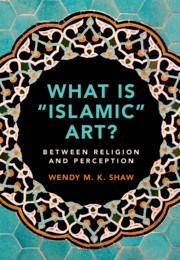Book contents
- What is “Islamic” Art?
- What is “Islamic” Art?
- Copyright page
- Epigraph
- Contents
- Figures
- Color Plates
- Preface
- Note on Transcultural Communication
- Introduction From Islamic Art to Perceptual Culture
- 1 The Islamic Image
- Chapter 2 Seeing with the Ear
- Chapter 3 The Insufficient Image
- Chapter 4 Seeing with the Heart
- Chapter 5 Seeing through the Mirror
- Chapter 6 Deceiving Deception
- Chapter 7 The Transcendent Image
- Chapter 8 The Transgressive Image
- Chapter 9 Mimetic Geometries
- Chapter 10 Perspectives on Perspective
- Conclusion Out of Perspective
- References
- Index
- Plate Section (PDF Only)
Chapter 4 - Seeing with the Heart
Published online by Cambridge University Press: 27 September 2019
- What is “Islamic” Art?
- What is “Islamic” Art?
- Copyright page
- Epigraph
- Contents
- Figures
- Color Plates
- Preface
- Note on Transcultural Communication
- Introduction From Islamic Art to Perceptual Culture
- 1 The Islamic Image
- Chapter 2 Seeing with the Ear
- Chapter 3 The Insufficient Image
- Chapter 4 Seeing with the Heart
- Chapter 5 Seeing through the Mirror
- Chapter 6 Deceiving Deception
- Chapter 7 The Transcendent Image
- Chapter 8 The Transgressive Image
- Chapter 9 Mimetic Geometries
- Chapter 10 Perspectives on Perspective
- Conclusion Out of Perspective
- References
- Index
- Plate Section (PDF Only)
Summary
Chapter 4 examines how the Quran informs perception outside of the parameters of art. It traces an ontology of perception rooted in the heart emerging from a hierarchy of the senses implicit in Quranic passages. It contrasts the complex ontology of the Quran as representation of the divine tablet as simultaneously writing and sound, always complete and always immanent, with secular interpretations of its material history. The Quran emerges less as a book than as a sonic image of the divine continually present in all its parts. The second part of the chapter examines how internalized perception of the Quran gave way to extensive discourses of love, the composite senses, and the metaphor of the heart-as-mirror as central to sensory and imaginary experience. The emotive response to Quranic beauty reverberates with discourses of the heart, the imaginary, and the contemplative faculties in Islamic thought. The discussion suggests that the aesthetics of the Quran reflected and promoted existing norms of inward mimesis. Drawing out connections with Greek and Buddhist philosophy inherited through Sasanian and Abbasid policies of translation, the chapter belies later European appropriations of antiquity as exclusively ‘Western.’
Keywords
- Type
- Chapter
- Information
- What is 'Islamic' Art?Between Religion and Perception, pp. 104 - 130Publisher: Cambridge University PressPrint publication year: 2019

